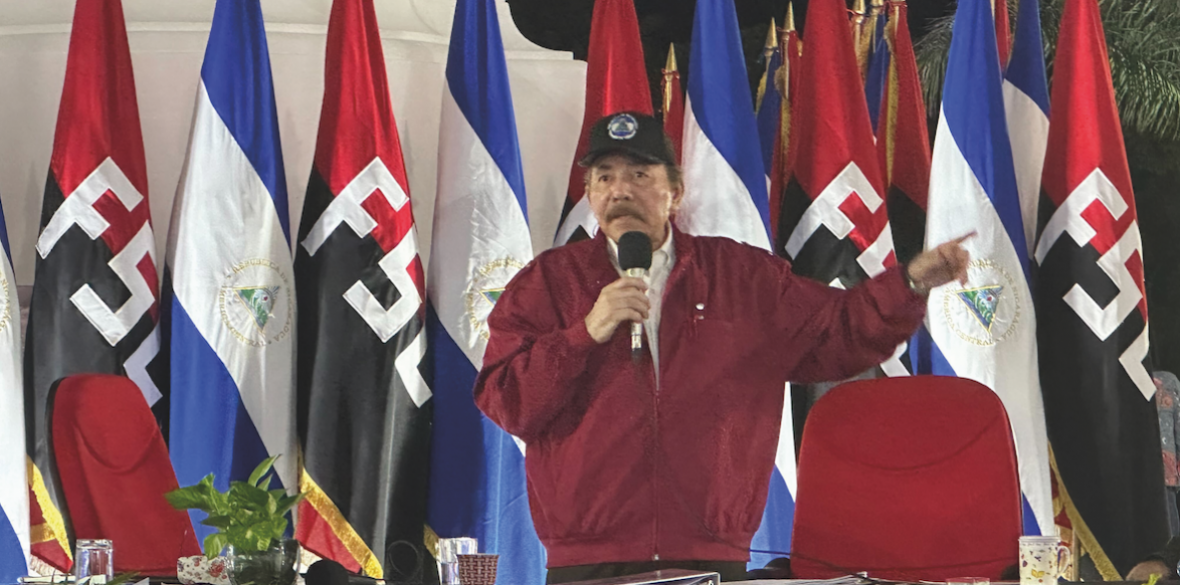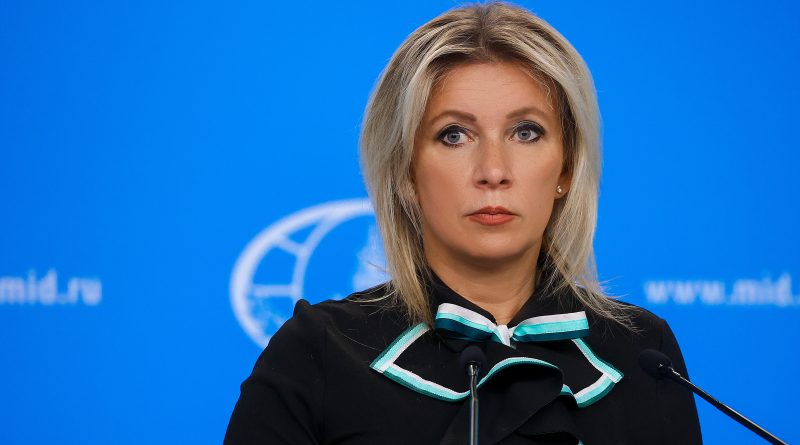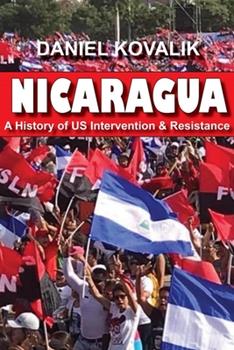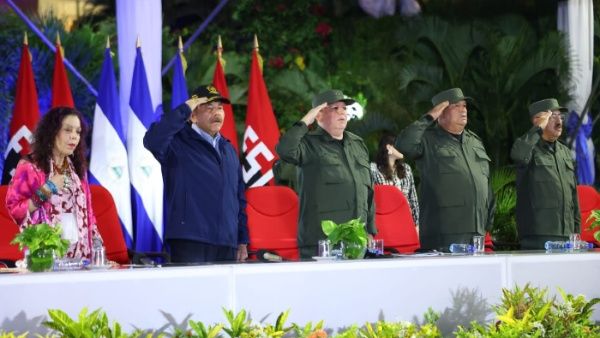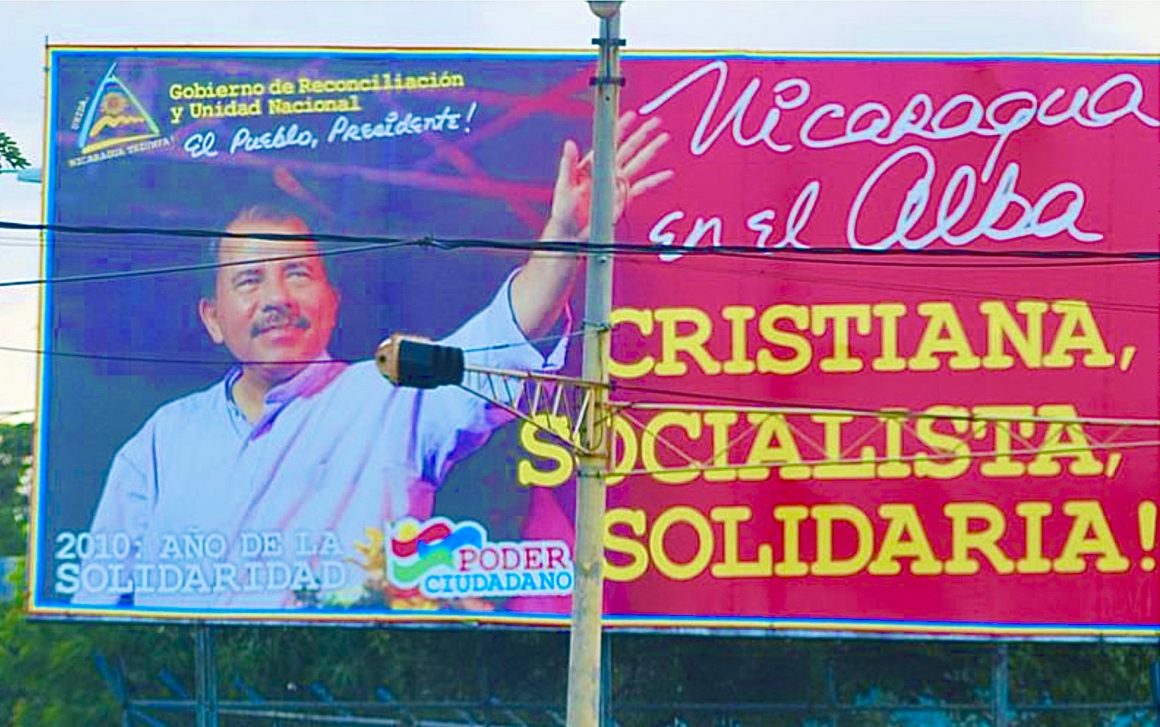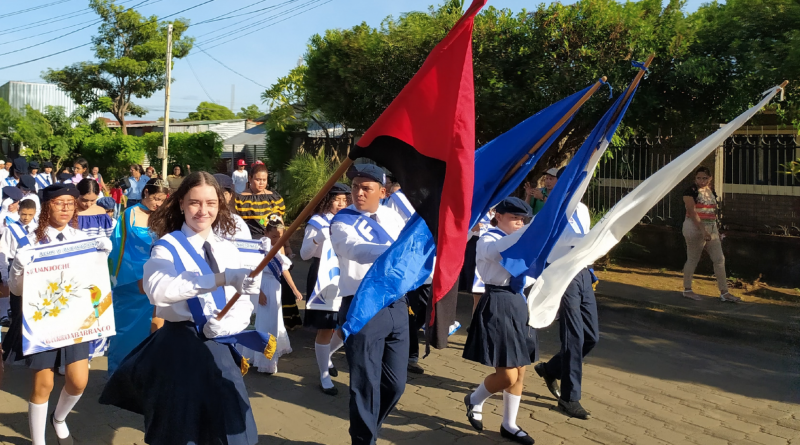
The attempted coup in Nicaragua in 2018: Why support for it collapsed
By John Perry, Daniel Kovalik (Posted Jul 15, 2023)
Movements, Revolutions, State Repression, StrategyAmericas, NicaraguaCommentary“Mothers’ Day march”, 2018 Coup, Daniel Ortega, Featured, Graphic Images
Two previous articles (1, 2) described the build up to the attempted coup in Nicaragua and how the media were crucial in convincing the public to support it. This article, covering the period from May 30 onwards, shows how the initial support peaked, then collapsed.
After more than a month of conflict, most Nicaraguans hoped that a “national dialogue” set up by the Catholic church would lead to peace, but in fact it led to renewed violence. During the hiatus before the dialogue began, and with the police now confined to their police stations on Daniel Ortega’s orders, roadblocks were set up on all the country’s arterial roads and throughout many key cities (see the map published by one of the coup leaders). Quickly dubbed los tranques de la muerte (“death roadblocks”), they not only strangled the country’s transport system but became the scene of intimidation, robberies, rape, kidnappings and murder.

Map of roadblocks in Nicaragua in June 2018, published by coup leader Francisca Ramirez.
The limited public support for the coup reached a climax at the so-called “Mothers’ Day march” on May 30, 2018. Two huge demonstrations took place in Managua, one in support of the government and a bigger one supporting the coup. The day began and ended with violence. Sandinistas travelling to the march from Estelí were ambushed at the roadblock to the south of the city: 27 people were shot, three dying from their wounds. In total, 28 people would die in that one day, of whom seven were Sandinistas, eight were opposition protesters and the rest of unknown affiliation or bystanders.

Armed roadblock operators south of Estelí, several with conventional weapons, others with “homemade” mortars.
Most of the deaths in the capital occurred because groups of protesters tried to cross police lines to attack the rival Sandinista march. Roadblocks were set up near the national stadium, from which protesters confronted the police. Some were filmed carrying firearms and even apparently shooting at fellow protesters, as seen in this documentary by Juventud Presidente (a pro-Sandinista media group). Other, peaceful protesters leaving the large march were caught in crossfire: allegedly this came from police sharpshooters, but may well have been a “false flag” operation to create chaos, because 20 police officers received firearms injuries. Later, some of the incidents were “forensically” examined by a “group of experts” commissioned by the Inter-American Commission on Human Rights (IACHR). A special website was created to show the evidence gathered, which focused solely on deaths among the opposition, as did a wider report on casualties by the same “expert” group. In response, an open letter was sent to the IACHR’s parent body by dozens of activists and solidarity organizations, pointing to the startling inaccuracies and omissions in the reports. Possibly as a result of the letter and accompanying article, a video reconstruction of the fatal incidents posted on the special website, was later taken down.


Rival marches in Managua on May 30, 2018: the opposition (top, photo from the BBC) and Sandinistas (below, photo from El19 Digital). A Google search for images of the marches will return only one photo of the Sandinista march.
For the U.S. government, corporate media and international human rights bodies, the “Mothers’ Day march” became emblematic of the protests. The opposition still laud the march as a triumph but afterwards it could be seen as marking the peak of their support. This was because in the weeks after May 30 the violence intensified: even the biased reports from local “human rights” groups show that for the whole of June, the majority of victims were ordinary people or Sandinista supporters. A family house in Managua’s Carlos Marx neighborhood was destroyed by fire: six people were burnt alive, including a baby and a two year-old girl. Arson attacks were launched against the pro-Sandinista Radio Ya, the old colonial town hall in the tourist city of Granada and the main secondary school in the city Masaya, serving over 3,000 pupils. Many other public buildings and homes of government supporters were destroyed. The opposition tried to blame all these incidents on Sandinista mobs, with opposition media such as 100%Noticias often having reporters present immediately an attack took place, so as to grab the headlines.
But for several violent incidents, it was more difficult to twist the story. On June 13, student leader Leonel Morales, who had urged fellow students not to support the protests, was kidnapped, shot and left for dead. On June 12, the municipal depot in Masaya was destroyed, together with all the vehicles used to maintain the city streets; those guarding the plant were kidnapped, culminating in the disabling torture of Reynaldo Urbina (who is known to both of us). Both the Catholic church and one of the Nicaraguan “human rights” bodies collaborated with the kidnappers. [Dan—your photo would be good here.]
On June 19, while the police station in Jinotepe was under siege, protesters brought two stolen fuel tankers close to the building and tried to explode them. On June 21, a young, gay Sandinista, Sander Bonilla, was kidnapped and tortured in Leon by the opposition in the presence of a Catholic priest.
On July 12, a supposedly peaceful procession of vehicles driven by opposition supporters entered the small town of Morrito and launched a fusillade of gunfire at the police station, killing five people. Local media portrayed the incident as a “confusing exchange of fire” in which a protester had been killed. A widely used photo showing the victim was false, however: it had been taken in Honduras in 2009.

Protester “killed” in the attack in Morrito on July 12: the photo is actually from Honduras, taken several years earlier.
Perhaps the saddest incident occurred in Masaya on July 14-15. Young, unarmed, off-duty police officer Gabriel de Jesús Vado Ruíz was kidnapped, tortured and, on the second day, killed. A Catholic priest, Harvin Padilla, was recorded telling the culprits that videos should not be posted because of the bad image they would create. Another priest, Edwin Roman, together with human rights worker Alvaro Leiva of local “human rights” body ANPDH, then attempted to remove the corpse and hide the crime.

Gabriel Vado’s body burns next to a roadblock in Masaya, July 15 2018.
Of course, the accepted history of the coup attempt, as told by the U.S. government, international bodies such as the UN Human Rights Council and most of the media, is that nearly all the victims were protesters, mainly students, killed by police or by Sandinista “paramilitaries”. The truth is far more complicated; people on the ground, especially those living in the places most affected, became increasingly aware of the opposition’s intentions. As Idania Castillo, a Sandinista quoted in Dan Kovalik’s book, Nicaragua: A History of U.S. intervention and resistance, points out: “the goal of the insurrectionists… was not just to depose the government, but to destroy all vestiges and historical memory of Sandinismo itself.” In a recent conversation, a friend who lived through the worst of the violence in Masaya, and survived an attempt to kill him when armed protesters burst into his home, described how, at nighttime, Sandinistas identified at roadblocks were stripped and painted blue and white (the colors of Nicaragua’s flag) before being forced to flee naked; neighbors would meet them with towels and water to help them.
By late June and early July 2018, patience with the insurrection had evaporated and most Nicaraguans simply wanted a return to the peace and stability that existed beforehand. Even those who were not government supporters, including many who initially joined the protests, could see where they were leading. They had experienced the benefits of a Sandinista government and (if they were old enough) the previous attempt to overthrow it violently, in the 1980s. Social progress was under threat and conflict was intensifying. It was time for three months of mayhem to come to an end.
The final article will explain how the coup attempt was halted, discuss its aftermath and consider what it means for the future of Nicaragua’s revolution.
https://mronline.org/2023/07/15/the-att ... collapsed/
******
NicaNotes: The Best Health Care Money Can’t Buy: Nicaragua’s Free Universal System
July 13, 2023
By Becca Renk
(Becca Renk has lived in Ciudad Sandino, Nicaragua, for 22 years, working with the Jubilee House Community and its project, the Center for Development in Central America. The JHC-CDCA has been in Nicaragua since 1994 working in sustainable community development and runs a full-time health clinic in Nueva Vida. The JHC-CDCA also works to educate visitors to Nicaragua, including through their hospitality and solidarity cultural center at Casa Benjamin Linder.)
Since the Sandinistas returned to government in 2007, Nicaragua has built 24 new hospitals, with high technology equipment and medical specialists. Photo taken at Vélez Paiz Hospital by Jennifer Aist.
The Neo-Liberal Era: Pushed into Private Care
In the crowded waiting room, my eyes focus on the feet walking past: unpainted toes in sandals, work boots, pedicures and high heels. I am in the melting pot that is Managua’s Fernando Vélez Paiz Hospital. Although it is a free public hospital, it is not just the poor who come here; it’s one of the largest and best-equipped hospitals in Nicaragua with a reputation for excellent service – even the wealthy seek care here.
State-of-the-art public hospitals – or indeed even ones that aren’t actively violating basic hygiene protocols – are a relatively new phenomenon. During 16 years of neoliberal rule from 1990 to 2006, health care was effectively privatized. The public budget for medicines and materials was minimal and political will of the governing party in Nicaragua to provide quality care for free was nil. This led to extreme deterioration of the public care system with the result that patients were pushed to pay for care in the private sector.
Nicaragua’s elite took advantage of the situation to make a hefty profit by building modern private clinics and hospitals. In this two-tier system, private hospitals were the gold standard and public hospitals became the last resort – and even there everything had a cost. Doctors often turned patients away for lack of gloves to examine them. When patients managed to be seen by a doctor, there weren’t even basic medicines, so they were given prescriptions they couldn’t afford to fill at a private pharmacy. Patients unfortunate enough to need surgery had to bring their own alcohol, gauze, sutures and family members who could donate the blood they would need. Laboratory tests, specialized treatments, and surgeries were so expensive that poor families effectively could not access the service. Every family desperate to save a loved one’s life would scramble to pay for private care to ensure they got the best attention available. For Nicaragua’s poor majority, public hospitals became the place where you went to die…unless your family could afford to save you.
Fortunately, that is no longer the case. In today’s Nicaragua, the best care can’t be bought because it’s available free of charge in the public health service. Unfortunately, Nicaraguans got so used to the unjust two-tiered system, that many families still believe they need to make economic sacrifices to seek out private care.
“We Don’t Have the Money”
The woman sitting next to me in the Vélez Paiz Hospital, Susana, is one of those people. She has dressed in her best clothes for the outing: t-shirt and jeans skirt scrubbed clean on rocks and flip flops – she doesn’t own a pair of sandals or shoes. Susana’s husband Hilario holds a small backpack with their overnight supplies: a change of clothes, soap and a comb. His button-up shirt shows faint lines where it was carefully folded – their house is one of just 0.7% of homes in the country still lacking access to electricity and they don’t have an iron…yet. The government has recently slated their community to get connected to the grid.
This is the story of how Susana got to the Vélez Pais Hospital. Our organization recently took a visiting medical delegation up to her village, the El Porvenir coffee co-op. We do regular clinics there because the co-op is located at a two hour walk from the nearest public health post, meaning its access to basic health care is difficult. At 8:30 pm Susana was the last of 89 patients to be seen by the doctors. At that point, we’d been working for six hours straight, half of that time using head lamps to see in the dark. Susana been waiting since early afternoon and was crying in fear as she showed the doctors the ultrasound test her daughter had paid for her to get in a private clinic four months earlier: the results showed a large ovarian tumor. The doctors called me in to explain to Susana that she needed to seek specialized care immediately.
“I can’t,” she told me. “We don’t have the money. At the private clinic they said the tests I needed cost C$2,000 córdobas [US$55]. I haven’t gone back because we can’t raise that much money.”
“Doña Susana,” I said, laying my hand on her arm. “You won’t pay anything. You just need to get to the public hospital.”
Then I took a deep breath and remembered where I was, remembered that even with the private air-conditioned bus we had chartered, it had taken our group most of the day to get to the co-op, and we had walked the last 5 km up the mountain. I remembered how bewildering even the best health care system can be to those unused to navigating it, I remembered how important it is for those facing serious health issues to have someone to advocate for them.
“Susana, come to Managua,” I told her, “and let’s go to the hospital together.”
More than a decade ago, one of my best friends died of cervical cancer, which at the time was one of the biggest killers of Nicaraguan women of child-bearing age. Martha was beautiful, unapologetically bold, and had a singing voice that would bring tears to your eyes. She fought fiercely to live – she wanted to see her daughter grow up. Although I’ve had the joy and privilege of being godmother to her daughter, I’ve never gotten over the waste of Martha’s death. Cervical cancer is so preventable that no woman should ever die of it. Unfortunately, Martha didn’t get the care she needed; by the time it was discovered, the cancer had already metastasized and it was too late for her.
So today I’m at the hospital accompanying another woman facing the specter of cancer, hoping that it’s not too late for Susana. Fortunately, her chances are much better than Martha’s were.
Revolutionized Health Care
What has changed? Since the Sandinista government was voted back into power in 2007, Nicaragua has made a long term financial investment in public health: over the past 10 years, social spending has gone from being 10% of overall spending to making up 57% of the country’s budget.
This investment has led to the most extensive and well-equipped public health system in Central America. In 15 years, Nicaragua has built:
24 new hospitals, with high technology equipment and medical specialists
15 more new hospitals are under construction or planned
181 maternity waiting homes where rural women can stay two weeks before their due dates, are attended by doctors, and give birth in the hospital
190 natural medicine clinics, guaranteeing care with sensitivity to cultural identity
73 pain management clinics
101 centers for people with special needs
Three prosthetics and orthotics workshops
52 mental health clinics
Two addiction treatment centers
The first medical oxygen plant in the region
The second molecular biology laboratory in all of Latin America
National Centers for cardiology, diabetes, chemotherapy and palliative care and audiology and speech therapy
Investment leads to results. Over the past 15 years, Nicaragua has seen:
Cervical cancer mortality reduced by 25%
Home births reduced by 88%
Maternal mortality reduced by 70%
Infant mortality reduced by 56%
Chronic malnutrition reduced by 46% in children under five
Chronic malnutrition reduced by 66% in children six to 12 years old
Average life expectancy increased by three years for men and women alike
Access to specialized care has drastically changed – services such as chemotherapy and radiotherapy that were once only offered in the capital are now offered at regional hospitals. Prior to 2007, many surgeries were only performed by international brigades; now heart surgeries and kidney transplants are routinely performed by local doctors. Nicaraguan doctors became the first team in Central America to perform in-utero surgeries, and now regularly perform these surgeries at two different public hospitals.
Family and community health care model
Nicaragua has a family and community-based model of health care with emphasis on prevention. This model relies on a network of 60,647 lay health care workers and volunteers who attend to patients in their homes and go door-to-door doing health education, mosquito eradication, vaccinations and census taking. These programs are extremely effective. For example, in just three weeks, this year’s annual vaccination campaign applied 2.3 million doses of vaccines to prevent childhood diseases, flu and pneumonia as well as 1.3 million doses of anti-parasite medication and more than 720,000 doses of vitamin A to children aged one to six. Additionally, 94.6% of Nicaraguans aged two and up have been fully vaccinated against COVID-19 and 45.3% have received two booster shots. Thanks in large part to its community-based health care model, Nicaragua faired relatively well in the pandemic; the World Health Organization has reported that Nicaragua had one of the lowest rates of excess deaths during the pandemic.
Health fairs are another way that Nicaragua brings healthcare to communities, carrying out 950 such fairs per week. Additionally, 68 mobile clinics, which are made out of converted trucks confiscated in drug busts, provide1.9 million consultations per year. A new program is doing outreach in schools nationwide, testing students’ hearing and vision, evaluating students’ speech, providing dental care and personal hygiene workshops, and vaccinating against COVD-19 for all 1.8 million students throughout the country.
The Best Health Care Money Can’t Buy
Considering the distance she has travelled, Susana has been given a same day appointment with the gynecologist and orders for an ultrasound and a mammogram. There are 40 women ahead of us in line, mostly pregnant women, others being seen for cryotherapy and colposcopies to treat precancerous lesions.
While Susana is in the exam room with the gynecological oncologist, Hilario tells me how worried he’s been about Susana. “I told her, let’s sell the pig; let’s sell the horse to pay for those tests. We can replace the animals, but we can’t replace you.” Hilario shakes his head, “She wouldn’t let me sell them.”
I know why Susana refused: the pig is being fattened for Christmas, but not for their family. That pig represents a large portion of their cash income and will buy food and school supplies. The horse is invaluable as their transportation, and is used to haul water and provisions; their lives would be so much harder without their animals. We’re surprised when Susana comes out of the exam room smiling.
“I don’t have a tumor at all!” She exclaims. “They did an ultrasound and an exam and I don’t have any tumor. They told me to come back here next year for my checkup.”
Later, I ask a doctor why the first results showed a tumor – was the private clinic simply incompetent or trying to squeeze money out of a poor family desperate to save a loved one? They tell me that while fraud is not uncommon in the private care sector, in Susana’s case, no one can say for sure if the erroneous results were due to negligence or maliciousness. Regardless, she and her family have spent four months worrying themselves sick for nothing.
On the way to the bus station Susana and Hilario are buzzing, effusive with their thanks and joking about the long trip back home; their relief is palpable.
In Nicaragua so many people suffered so much during the neoliberal years that society became scarred. Sometimes it still seems too good to be true – clean, modern hospitals with trained medical professionals for free? Really? Thanks to the Sandinista government’s political will to prioritize the poor and its Herculean efforts to modernize and expand its system, the best health care in the country is now free. Now families like Susana’s are beginning to believe it.
SOURCES:
Gobierno de Reconciliación y Unidad Nacional: Plan Nacional de la Lucha Contra La Pobreza Para el Desarrollo Humano 2022-2026 https://www.tortillaconsal.com/plan_nac ... 7-2021.pdf
Interview with Ivan Acosta, Nicaraguan Minister for Housing and Public Credit https://popularresistance.org/nicaragua ... velopment/
Ministry of Citizen Power for Health Nicaragua: Advances in Health From 2007 to 2020 http://www.tortillaconsal.com/tortilla/node/11331
Mapa Nacional de Salud en Nicaragua: https://mapasalud.minsa.gob.ni/
Nicaragua News 3 May 2023, 5 May 2023, 12 May 2023
Briefs
By Nan McCurdy
Three Important Agreements Signed with China
Representatives of the governments of Nicaragua and the People’s Republic of China signed three agreements related to the donation of wheat, urea and buses for public transportation. China will donate 1,481 metric tons of wheat, 2,595 metric tons of urea, and 500 buses to continue improving the Nicaraguan transportation service. President Ortega thanked the President of China, Xi Jinping, for this cooperation that is provided in solidarity and unconditionally through the China International Development Cooperation Agency (CIDCA) for the benefit of Nicaraguan families. Lou Zhaohui, President of CIDCA, said China will continue to support the efforts of the Nicaraguan government to meet its goals of poverty reduction and human development. A Nicaraguan delegation is in Beijing participating in the first high-level conference of the Global Action Forum for Shared Development. The event, chaired by Lou Zhaohui, is where different initiatives to strengthen shared development between peoples are being addressed. See photos: https://radiolaprimerisima.com/nicaragu ... portantes/ (Radio la Primerisima, 11 July 2023)
Nicaragua: Shining Example in Use of Renewable Energy
The digital media outlet “EnergyPortal.eu” published an article on June 29 titled “Solar Energy in Nicaragua: Shining a Light on a Bright Future”, highlighting the country’s development and use of solar energy. The article states that approximately 70% of electricity used in the country is from renewable sources, and solar energy has emerged as a key component in the nation’s quest for sustainable development. “The solar energy potential in Nicaragua is immense and with the ambitious target of achieving 90% energy generated from renewable sources by 2027, policies and incentives have been implemented to encourage investment in solar energy, including tax exemptions, low-interest loans for solar equipment, construction of large-scale solar power plants and promotion of the use of solar energy in households.” The article noted that “At a time when the world seeks to transition to a more sustainable energy future, Nicaragua’s commitment to solar energy offers a shining example of what can be achieved when governments, businesses, and communities come together to embrace the power of renewable energy.” (Nicaragua News, 3 July 2023)
Non-Aligned Movement Supports Demand for Compensation from the US
Nicaragua received support for the 1986 ruling of the World Court against the United States from the Non-Aligned Movement at a meeting held last week in Baku, Azerbaijan. The Ministerial Meeting of the Coordinating Bureau issued a joint declaration in which the member countries expressed their support for Nicaragua’s request for compliance with the historic ruling handed down by the International Court of Justice and compensation for damages in accordance with the ruling. The statement highlights that “the persistent refusal of the United States to comply with the Judgment of the International Court of Justice issued 37 years ago, is a flagrant violation of international law and of the ruling of the highest court of justice in the world.” (Nicaragua News, 7 July 2023)
Oncology Center Provides Free Care to 13,000 Patients
Specialists at the Dr. Clemente Guido Oncology Center for Chemotherapy and Palliative Care, inaugurated in 2020, have provided 44,166 free consultations to 12,998 patients from all over the country suffering from different types of cancer. According to a report, 26,420 chemotherapy sessions, 9,451 palliative cancer care sessions, 3,083 nutrition sessions, 2,640 pain clinic sessions and 2,572 psychology sessions were provided. The most frequent types of cancer suffered by their patients are cervical, breast, uterine, ovarian and endometrial cancers. See Photos: https://radiolaprimerisima.com/centro-o ... pacientes/
(Radio La Primerisima, 5 July 2023)
MINSA Has Acquired Wide Variety of Medical Equipment since 2008
From 2008 to date, the government has acquired seven CT scanners, MRI equipment and two linear accelerators, which guarantee timely diagnoses and treatments, said Dr. Martha Reyes, Minister of Health. More than 400 ultrasounds have been distributed in all the health units of the country; some of them are portable, which allows them to be taken on mobile clinics to provide direct attention to the most distant communities. The ultrasounds help with follow-up of women’s pregnancies and diagnose kidney and gall bladder stones. Equipment also includes 129 colposcopy and 100 cryotherapy machines. There are 38 mammography machines, 300 electrocardiogram machines and 49 echocardiogram machines. “We continue to make progress in restoring the health care rights of our chronic hypertensive, diabetic and cardiac patients, and this allows us to resolve and treat people in a timely manner, ” said Dr. Reyes. (Radio La Primerisima, 10 July 2023)
Growth in Foreign Direct Investment
The United Nations Conference on Trade and Development published its “2023 World Investment Report” on July 6 which states that Foreign Direct Investment (FDI) to Nicaragua in 2022 totaled US$1.3 billion, a 5.8% growth over 2021. It also noted that “FDI to Nicaragua grew 131% between 2000 and 2022, demonstrating consistent and stable growth, making the country one of the leading foreign investment recipients in Central American.” (Nicaragua News, 7 July 2023)
15,000 Small Producers to Receive Training and Inputs
The General Juan Gregorio Colindres Technological Development Farm in Ocotal, Nueva Segovia Department, which was inaugurated recently, will strengthen the technical capabilities of 15,000 small agricultural producers. The US$1 million-dollar farm includes a germplasm bank of various varieties of seeds, an organic fertilizer production module, a study and research area for fruit, vegetables, and medicinal plants, as well as reproduction and genetic improvement areas for sheep, pigs, goats, and poultry. The funding is part of the Strategy for Agricultural Development and Transformation that the government is implementing in support of sustainable development. (Nicaragua News, 7 July 2023)
University in the Countryside Opens its Doors in Mulukukú
On July 29, a branch of the University in the Countryside Program will be inaugurated in the municipality of Mulukukú in the Northern Caribbean Coast region. The rector of the Agrarian University, Alberto Sediles, said that they currently have 600 students in this program in the municipalities of San Francisco Libre, Matiguás, Juigalpa, Morrito, Boca de Sábalos and Tiktik kaanu, the latter in the South Caribbean. Sediles stressed the importance of taking higher education to the countryside, so that students can contribute to local development and establish themselves as producers and entrepreneurs within their territories. (Radio La Primerisima, 12 July 2023)
Public Servant Training for Inclusion and Accessibility of People with Disabilities
The National Technological Institute (INATEC) reported that US$400,000 has been invested in the new Comandante Carlos Fonseca Center in Managua for the training of public servants in tools and methodologies that guarantee visibility, inclusion, and accessibility for people with disabilities. INATEC General Director Lloyda Barreda stated that “the center will offer 20 academic courses to public servants that will be developed and taught by specialists from the Comprehensive Medical Care for People with Disabilities and Inclusive Special Education Programs that Nicaragua is implementing to guarantee the promotion and restitution of rights of people with disabilities. These courses are essential requirements for teachers, police officers, firefighters, members of the army and other public servants.” (Nicaragua News, 10 July 2023)
Military Hospital a Pioneer in Minimally Invasive Procedures
Five people, including two over 80 years of age, were operated on at the Military Hospital during the first day of transcatheter aortic valve implantation, which is performed for the first time in Nicaragua without the need for open heart surgery. Dr. Noel Vladímir Turcios, director of the hospital, said that, with these operations, the patient has a faster recovery time by 24 to 48 hours. He explained that risks of death in an open-heart surgery are high but, with this procedure, the surgery is performed under local anesthesia, and conscious sedation, which allows placing the valve to prolong life. “It is a revolution in the management and treatment of patients who have aortic valve diseases,” he said.
José Francisco Buitrago, one of the beneficiaries acknowledged the high level of quality at the Military Hospital: “It seems unbelievable, yesterday I was operated on and today I am discharged. In almost an hour that the operation lasted, I am a new person able to serve my country. I cannot compare how good it is to be operated on in this hospital, I am very grateful for the attention received by the excellent doctors.” With this type of procedure, the Military Hospital is a pioneer in performing minimally invasive procedures in response to highly complex cases. (Radio La Primerisima, 10 June 2023)
Río Coco Geopark in Madriz Retains its UNESCO Distinction
A UNESCO (United Nations Educational, Scientific and Cultural Organization) evaluation mission arrived July 3 in the department of Madriz. Its objective was to visit the tourist attractions and archaeological sites of the municipalities that make up the UNESCO Rio Coco Global Geopark in Madriz. During the visit, the evaluators sought to learn about the progress of this project in the five municipalities of the Río Coco Geopark in order to provide recommendations and promote tourism as a potential source of sustainable and cultural development for the region.
The UNESCO Global Geoparks program requires that every four years the geopark designation be revalidated. Two observers prepare a technical report with the necessary information, which is then evaluated by twelve geopark experts to ratify the designation, explained Helga Chulepin, UNESCO evaluator. The vice mayor of Somoto, Marcio Rivas Núñez, who also represents the Río Coco Geopark in Madriz, affirmed that the visit of the UNESCO observers strengthens the work that has been done to promote the archaeological and cultural heritage in the department. “Once a geopark begins, there is no turning back. We must continue to promote our natural and cultural riches, taking into account the recommendations of the evaluators,” Rivas said. Geo-schools have been created and the studies are being carried out by universities in archaeological sites to increase the knowledge of this territory. UNESCO’s positive evaluation reaffirmed the importance of the Río Coco Geopark in Madriz. (TN8TV, 8 July 2023)
Walks for Peace Held Throughout the Country
On July 8 all over the nation the people held walks for peace to celebrate Victorious July and also the fifth anniversary of the defeat of the 2018 coup attempt. Residents of Nandaime walked from the Casa Sandinista through the main neighborhoods of the city, where everyone waved the red and black flag of the Sandinista Front and chanted revolutionary slogans. The streets of Siuna became a sea of red and black, when the Sandinista militancy went out to commemorate the 44 years of the Popular Sandinista Revolution and the victories of the people. Victor Rugama, member of the Regional Council of the North Caribbean said that this is just a small sample of the Sandinista strength that Siuna and the Caribbean people have. “We went out to celebrate all the projects that have been done in the Caribbean, especially the road, energy, health and education for all,” he explained. Hundreds of thousands of Sandinistas walked through the main streets of the university city of Leon to the rhythm of revolutionary music.
In Matagalpa Sandinistas took to the streets remembering the benefits that the revolution has brought to the poorest families of the country. In this walk they also remembered and paid tribute to Aran Molina who was murdered in the 2018 coup attempt. Molina was killed when, on July 8, 2018, he, along with others, was trying to rescue a family that the coup plotters had surrounded and were threatening to kill.
Sandinista militants of Granada walked carrying the red and black flag next to the white and blue, chanting revolutionary songs and slogans that raised the spirits of all participants. In the municipality of Altagracia on Ometepe Island families walked in salute to the 44th anniversary of the Sandinista Popular Revolution and highlighted the achievements of the revolution, which are still in force today; they said they join these walks to defend the freedom and rights of the people. The walks took place throughout the country; that is to say in all the Sandinista territory of Nicaragua. See photos: https://www.tn8.tv/departamentos/siempr ... or-la-paz/ (TN8TV, 9 July 2023)
https://afgj.org/nicanotes-the-best-hea ... sal-system












